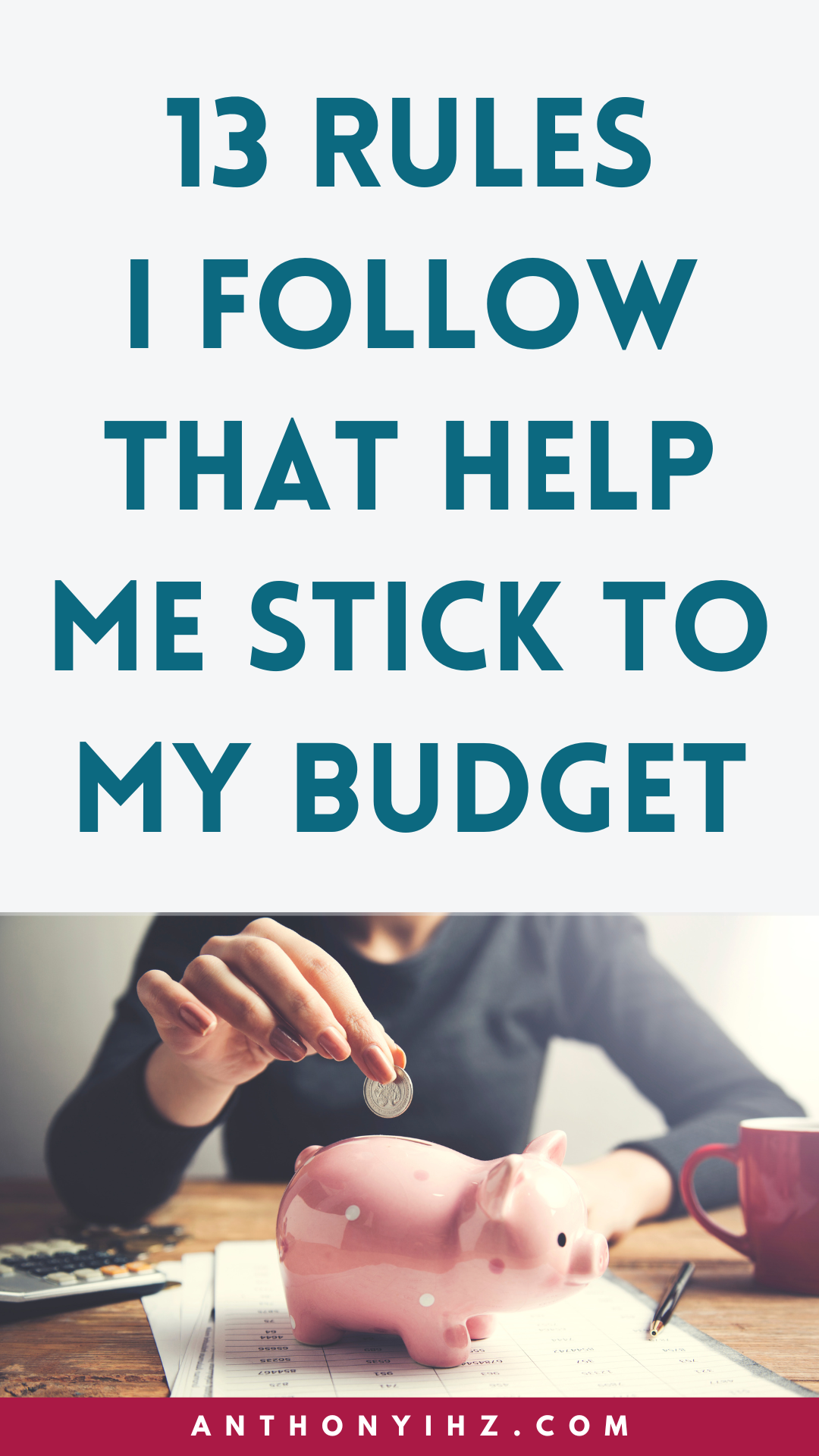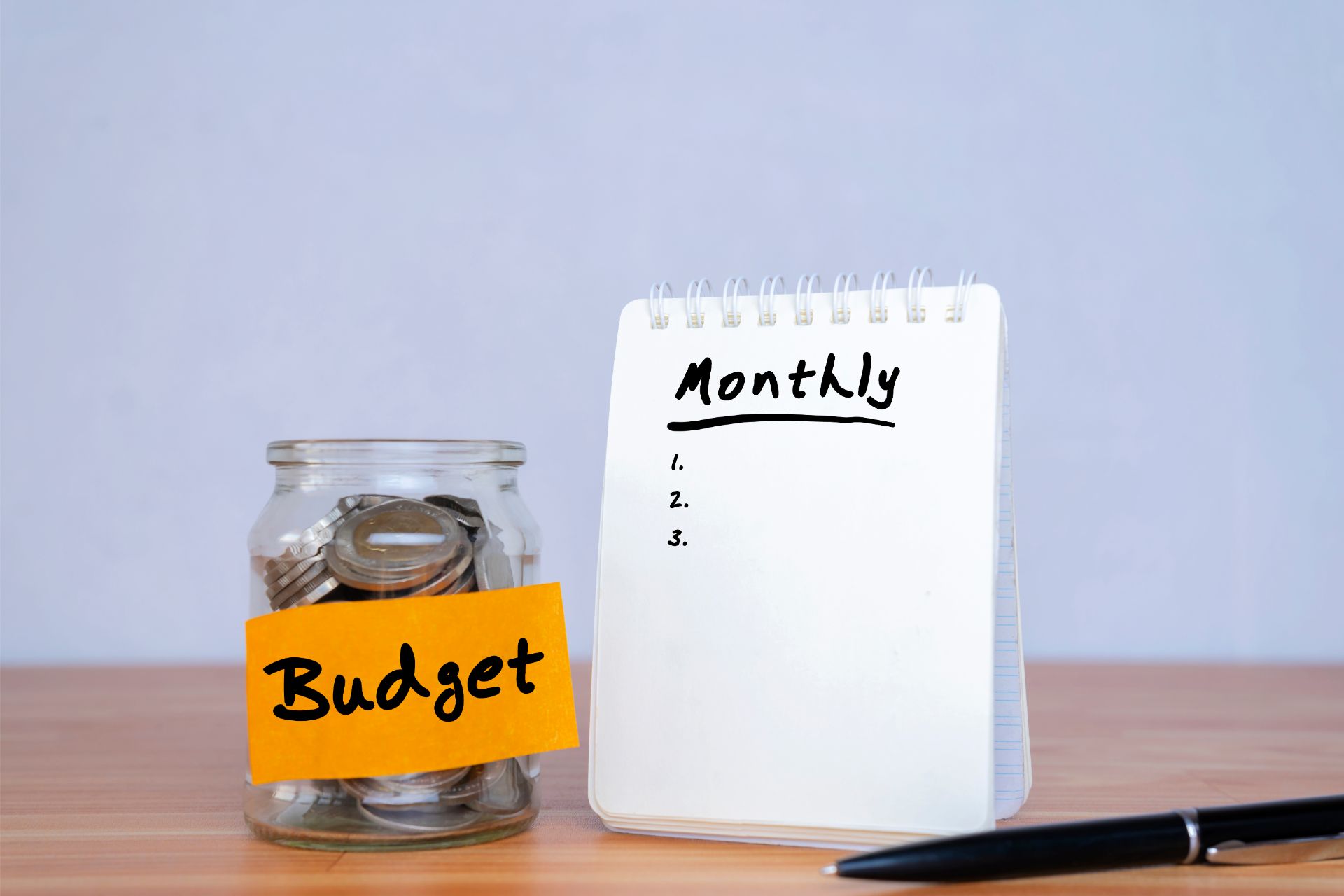
Budgeting plays a significant role in helping you control your finances and taming your spending habit. If you are looking for an effective way to spend wisely and manage your salary, you should consider building a working budget. But most importantly, you need to also learn how to stick to a budget.
Some people try to improve their finances by building a budget, but they often fail at sticking to the financial plan and this nullifies their main goal – managing money effectively.
In this post, you will learn some of the best practical techniques that you can employ to build a budget and stick to it successfully. It’s important you remember that spending strictly according to your budget would certainly have a positive impact on your finances.
What Is The Best Way To Stick To A Budget?
One of the best ways to possibly stick to a budget is by lowering your expectations and cutting down on your expenses. The moment you intentionally decide to spend less by being frugal, you won’t find it hard to stick to a budget.
Why Is Sticking To A Budget So Hard?
Sticking to a budget is often difficult since there are so many expenses (both fixed and variable costs) that you need to cover every month. On the other hand, if you have bad spending habits, implementing a budget would be difficult.
Why You Should Stick To Your Budget
You should never see budgeting as a mere formality you have to adhere to every month. Instead, consider budgeting a simple strategy that is instrumental to your financial growth and safety. Besides, here are some reasons why you should know how to stick to your monthly budget:
Sticking To Your Budget Prevents Overspending
When you know how to stick to a budget, you will stop spending money you don’t have. Remember that your monthly expenses are not supposed to equate to or surpass your take-home pay. Otherwise, you are obviously living beyond your means, and that’s the easiest way to be trapped in debts.
By building a budget, you already have a blueprint for you to spend less and live within your means, but sticking to the budget is what actualizes the goal.
Sticking To Your Budget Makes Retirement Saving Easier
Budgeting your money and sticking to that plan is one of the simple ways to prepare for retirement. Once you decide to start investing in your future, you have to painstakingly watch your spending habits.
You need to reduce your living costs to be able to save more money in your retirement fund. This is possible when you make it a habit to stick to your budget every month. You will find yourself reaching your savings goals gradually.
Sticking To Your Budget Helps You Prepare For Emergencies
Aside from your fixed and variable expenses, emergencies can also take out money from your checking account. If you fall critically ill and you don’t have insurance to cover it, you would have to pay the medical bills yourself. Mind you, you never prepared for this cost. This is why you must learn how to stick to your budget.
Sticking to your budget and reducing living costs will enable you to save money to build an emergency fund. An emergency fund with enough money to pay your bills between 3-6 months can serve as a financial fence protecting you from unplanned expenses.
Sticking To Your Budget Reveals Bad Spending Habits
You may never know your bad spending habits until you decide to build a budget and stick to it.
Paying for big purchases without a proper plan, indulging in impulse buying, and excessively using your credit cards are some of the common bad habits people have when it comes to spending money. However, these habits can be tamed or even broken when you take budgeting seriously.
As much as this isn’t easy to pull off, you can develop better spending choices by using your salary according to your monthly budget.
Sticking To Your Budget Helps You Achieve Long-Term Goals
We all have certain long-term goals that are precious to us. From retiring early to paying off mortgage faster, we have various financial goals that must be met before retirement. It might interest you to know that none of your long-term goals can be accomplished if you keep spending your hard-earned money excessively.
Without curbing your expenses by sticking to a budget, how would you save toward the accomplishment of your goals? It’s practically impossible.
Building a budget and spending according to the plan could make your goals more feasible in the future.

13 Best Ways To Stick To A Budget
Whether you are budgeting your money for the first time or not, here are some actionable tips on how to stick to a budget throughout the month:
1. Be Honest About Your Goals

One of the reasons why people set goals and fail to achieve them is that they are not keeping it real. One important factor that brings a goal to fruition is realism. Hence, when building a budget, you have to be realistic with your goals. It’s good to push yourself, but don’t overdo it.
For example, saying you won’t eat out for the entire year just because you want to save might not be a realistic objective. Instead, you could take on a 30-day no-eating-out challenge to build the habit.
When you make honest decisions about your financial situation, achieving your goals becomes easier.
2. Set Up Automatic Bank Drafts
This is one of the best tips for sticking to a budget. As humans, you can’t possibly remember every single thing you have planned to do for the month. You need to have a system that either reminds you of your tasks or helps you execute them.
Setting up auto draft is a brilliant way to meet up with certain payments even when you forget. This option allows you to automatically pay bills and transfer savings deposits into your savings accounts.
3. Plan Weekly

If you are just learning how to build a budget for the first time, it’s better to think weekly. This means breaking some of your budget lines into weekly portions so you don’t feel overwhelmed by the spending.
For example, if you set aside $400 for personal spending, then you can think of it as $100 every week. If you budget $1000 for groceries, it means about $250 leaves your checking account every week.
Making weekly plans is more or less the same thing as taking “baby steps”, especially when you are new to budgeting. It helps you to stick to your goal.
4. Resort To Meal Planning

Meal planning is another important practice that will help you learn how to stick to a budget. When you have busy schedules with little time to cook, you are often tempted to walk into the restaurant and order lunch or dinner. As much as this is more comfortable, bear in mind that it is way more expensive than actually cooking your own food.
Plan your meals: breakfast, lunch, and dinner. Meal planning helps you stick to your budget by reducing your expenses.
5. Live Below Your Means

When trying to figure out how to stick to your budget, be prepared to live below your means.
Ideally, a budget is supposed to keep you from living beyond your means. The moment you start breaking your budget by spending too much, you are simply living above your financial capacity. Before you know what’s happening, you would run into debt and start living paycheck to paycheck. Deliberately making efforts to live within your means is a great way to stick to your monthly budget.
Besides, if you need specific tips to help you reduce your spending and live below your means, here are some practical strategies you can employ.
6. Check Your Social Calendar
Aside from budgeting for your regular monthly bills, you also need to plan for things like birthday celebrations, anniversaries, and whatnot. If your BFF’s birthday is coming up, you should make room for it in your budget. If you are going to host a book club in a few weeks, include it in your current budget. If you fail to do this, you will have to break your budget when these expenses show up.
Of course, emergencies can pop up at any time. But proper planning can make your financial situation bearable. So, check your social calendar and identify all the events that would pull money out of your pocket. Don’t let them catch you unaware.
7. Stop Using Credit Cards

Avoiding the use of credit cards is one of the best ways to stick to a budget. Millions of Americans are always in debt, and that’s because of credit cards. Knowing that the money you are about to spend won’t be directly deducted from your checking account can motivate you to spend excessively.
If you must know how to stick to a budget, you can’t keep using someone else’s money. Because at the end of the day, that money would be taken back from you with interest. You may not be earning a lot of money, but if you decide to live within your means, you probably won’t be needing a credit card.
8. Get An Accountability Partner

One of the most effective ways to stick to a budget is by having an accountability partner: someone who’s interested in your goal and encouraging you to keep pushing.
If you are married, congratulations! You have a natural accountability partner to help you spend according to your budget. In fact, it’s important to build the budget together with your partner. They could offer suggestions on how to improve your budget and be more realistic with your goals.
9. Try A No-Spend Challenge
Also known as a spending freeze, a no-spend challenge could be one of the most effective tips on how to stick to a budget. This challenge is simple: deciding not to spend money for a specific period of time. You can only spend on your necessities.
You can do a no-spend challenge for a week or a month. Some people even go as far as embarking on the challenge for a whole year. This will drastically reduce your living costs, saving a ton of money. Eventually, you will be able to stick to your budget.
If you are thinking about embarking on this challenge successfully, here is a simple guide for how to carry out a no-spend challenge even if it’s your first time.
10. Take Your Time With Big Purchases

Whenever you are about to spend a ton of money on something, you must take some time to think about your decision carefully. Think about how that single purchase could affect your financial situation positively or negatively.
For example, if you are accepting a car loan and you are certain that the payment plan won’t mess up your budget, you can go ahead with it.
Any purchase that would prevent you from spending according to your budget every month should be forfeited except if it’s an emergency. Sleeping on big purchases is quite important. It’s one of the helpful tips to stick to your budget.
11. Reduce Your Subscriptions
Do you know the exact number of subscription-based services you pay for every month? Your monthly subscriptions could amount to a lot of money, and this is even worse when you don’t need most of these subscriptions. It’s simply a waste of money.
Learning how to stick to a budget and save money means you have to live below your means but cutting down on all secondary expenses including the things you subscribe to every month.
Aside from film and music streaming platforms, other subscriptions such as gym membership should be carefully looked at. You may hit the gym once a month, meanwhile, you are paying for an entire month. As long as you aren’t actively using the service, please cancel your subscription.
12. Pay Yourself First

You might need to employ the pay-yourself-first strategy if you want to know how to stick to a budget for good. It’s a simple budgeting strategy that entails paying for all your necessities before spending on your wants. When you receive your paycheck, set up some automatic transfers to pay for your bills and save toward certain financial goals.
It’s all about focusing on what’s important and then doing what you like later on. Apparently, this is an easy way to stick to your budget. As long as you have finished setting money aside for all your fixed and variable bills, as well as your savings goals, you can spend the rest of your salary as it pleases you.
13. Compare Brands
Sometimes, we tend to spend more money on items because we are already used to a brand. Anyone who knows how to stick to a budget knows how important it is to compare brands before purchasing anything. Of course, brand loyalty would always exist. But if staying loyal to a brand would cost you extra money, you might want to stop being sentimental and make the right decision.
Before you go on your next grocery shopping, ask around for the cheapest store. You should shop there as long as you are getting the same items you’d get at your “favorite” grocery store.
The Bottom Line: How To Stick To A Budget
Learning how to stick to a budget can be more difficult when you see it as a daunting task. Budgeting should be seen as a lifestyle. It’s one of the good financial habits you should have if you want to spend and manage your money effectively.
Also, it’s OK to reward yourself after sticking to a budget. There are so many simple ways you can encourage your efforts. Seeing a movie, eating your favorite meal, or buying a pack of beer won’t break the bank. It’s a way of patting yourself on the back for a job well done.
Pin this for later!

